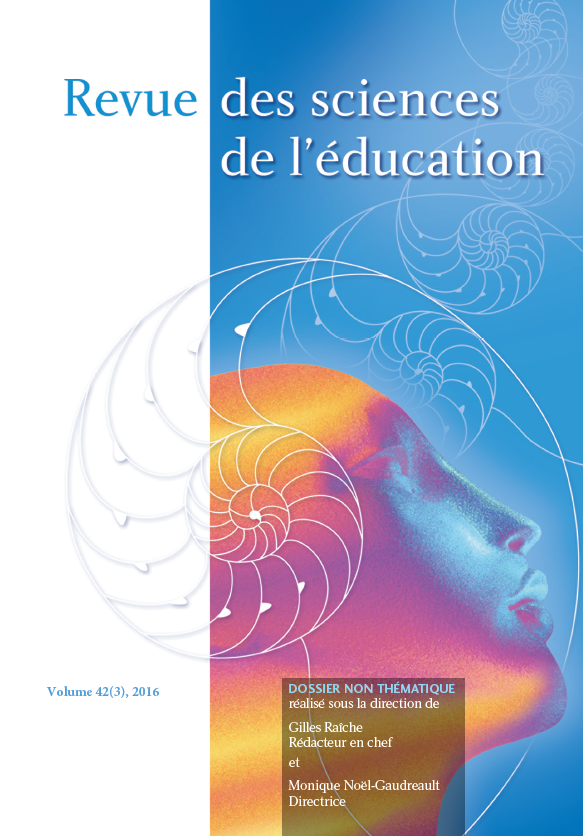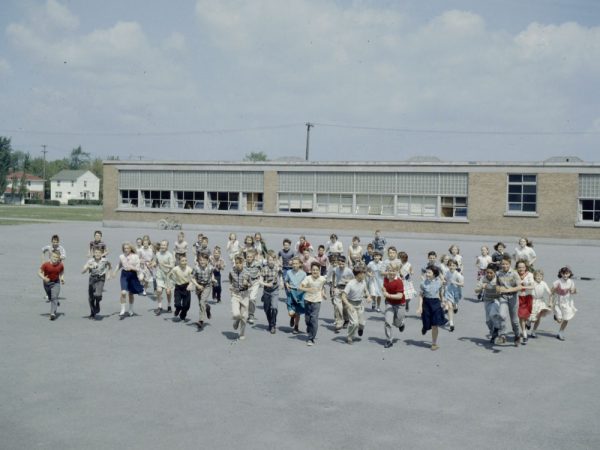The Revue des sciences de l’éducation has existed since 1974. What prompted its creation?
The Directors and deans of the departments and faculties of education of French language Canadian universities presided over the foundation of the journal in the wake of reforms which, particularly in Quebec, had begun during the previous decade. These reforms had led, for example, to the formation of university faculties to succeed normal schools, which were sometimes less focused on criticism or on innovation and more on the technical aspects of the profession. It was a question of supporting and stimulating the dissemination of research in French on objects specific to education or of a point of view based on a process of rigorous research.
During its more than four decades of publication, the review has probably experienced different periods, much like the discipline to which it belongs.
The sciences of education have been exposed to many currents throughout the world for quite some time. In our journal, as in others of this type in francophone Europe and America, the most salient feature is the plurality of paradigms. The latter is particularly visible when one observes the evolution of issues within a slightly longer time-period. This phenomenon is reminiscent of the various waves in research in the social sciences. For example, positivism and constructivism have alternated in terms of prominence, just as psychological and sociological research and functionalism and Marxism have exchanged places, and occasionally overlapped. The list would be long, depending on the classification criteria.
The publishers of the journal have always endeavored to prevent sectionalism. So, there was never a hegemony of a type of research, even if meta-analyses, large-sample surveys and theoretical research with universal scope are much more present at certain times than, for example, case studies on the learning of a disciplinary approach by a targeted group (and vice versa). Certain classification criteria are themselves the subject of debate such as the distinction between the so-called quantitative and qualitative methods, even if this characterization is sometimes quite instructive, distinctive or useful. Notice, however, that research using an experimental design and a statistical sample are a bit rarer for all sorts of administrative, ethical, financial and technical reasons, but also because the objects of study themselves are sometimes difficult to problematize and the variables difficult to isolate.
Could it be said that the issues addressed in the journal and their evolution are the reflection of the relations between society and education?
Once again, with the benefit of hindsight, we see that these developments can be associated with major political and social currents although the picture becomes more complicated when viewed more closely. So, in the 1970s, the increase in the annual number of strike days per person, the impact of decolonization struggles, civil rights, and the equality of women coincided with the production and dissemination of research on social reproduction. But, at the same time, the influence of the humanist psychology rose to the surface as numerous authors insisted on the development of the person, on creativity and on non-directivity. One research project, for example, analyzed a ministerial program of adult intervention that favored “as social change a transformation of the working class from within, by reducing the meaning of working-class claims and by refusing any politicization of education1”. By contrast, in the 1980s, when the policies inspired by Thatcherism and the decline of union combativeness were on the rise, there was an article on the roles played by Quebec school administrators in the relationship between schools and school boards2.
How does the Revue define its editorial policy? How are topics selected? Does the journal have a political mission, in the sense of enlightening the public?
First of all, the journal receives all of the research articles that focus on education. In this sense, we do not select the articles from an editorial point of view. There is obviously a selection, as in all other scholarly journals, made by double-blind evaluations conducted by experts in the field.
Since 2016, the journal has been published only in digital format. Can you tell why you abandoned paper? Was there any resistance?
In our case, the reasons for which the digital format has taken the place of print are simple: it was easier to reach a wider audience by putting our articles online since articles were more widely circulated. The costs of publication have also been taken into account. In a context of budgetary compression and declining sources of funding, this change reduced our expenditures and ensures the long-term survival of the journal. While the latter was not in play, general trends made us more cautious. Another important factor prompted us to limit the journal to a digital format. It was the pressure exerted by Canadian and Quebec granting agencies for journals funded by them to become completely free-access. For us, this implied digital access to published articles.
There was no resistance as such, although there was some nostalgia and a certain fear of loss of memory, if there happened to be computer problems, for example. The association with Érudit was, from this point of view, reassuring, especially when we consider the actions of those large scholarly publishers that hold university libraries to ransom by threatening to withhold access to “their” journal archives often created with public funds and supported by researchers accountable to society.
~~~
The editorial committee of the Revue des sciences de l’éducation has selected some of the articles that have marked its history. You can find them below, in the Bibliography section.
Notes
1 Lionel Groulx, « Multi-Media : idéologie progressiste ou conservatrice ? », Revue des sciences de l’éducation, vol. 3, no 2 (1977) : 181-190. read
2 André Brassard, Luc Brunet, Lise Corriveau et Georges Martineau, “Les rôles des directions d’école dans la relation école-commission scolaire”, Revue des sciences de l’éducation, vol. 12, no 2 (1986) : 251-275. read
Translation: Peter Keating


